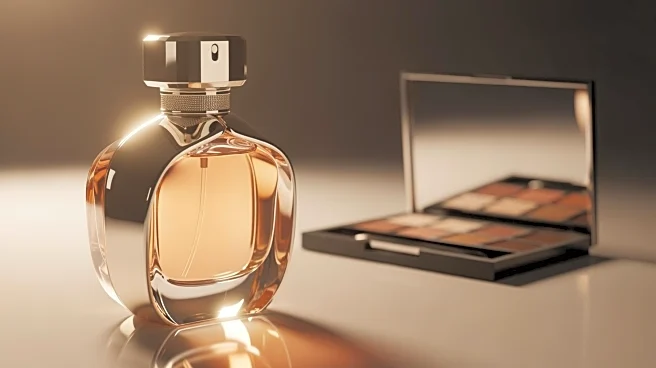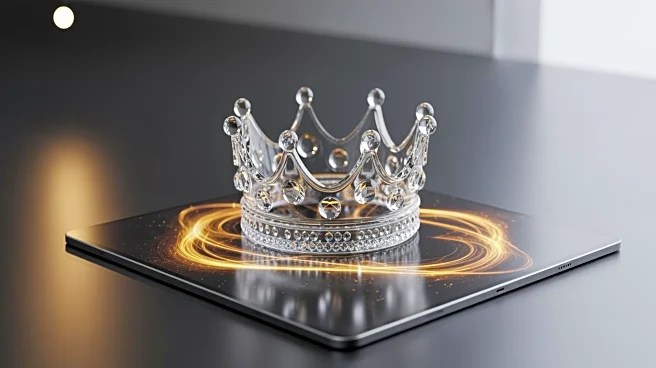What's Happening?
Kering, a French luxury group, has announced the sale of its beauty division to L'Oréal for four billion euros. This transaction is expected to be completed in the first half of 2026 and involves cash
payment upon completion. The sale has sparked speculation about the future of L'Oréal's relationship with the Armani Group, as L'Oréal has held the Armani license for fragrances and cosmetics since 1988. The media has raised concerns that this deal could limit L'Oréal's ability to acquire a 15 percent stake in Armani, as outlined in Giorgio Armani's will. The will stipulates that the Armani heirs must open up the capital or proceed with a partial sale within 12 to 18 months. The sale to L'Oréal may reduce the company's financial flexibility, potentially forcing the Armani heirs to consider other investors such as LVMH or EssilorLuxottica.
Why It's Important?
The sale of Kering's beauty division to L'Oréal is significant as it impacts the strategic options available to the Armani Group. With L'Oréal's financial resources now committed to the Kering acquisition, the Armani heirs may need to explore alternative investors to fulfill the conditions of Giorgio Armani's will. This development could influence the future ownership and strategic direction of the Armani brand, a major player in the luxury fashion industry. The transaction also highlights the competitive dynamics within the luxury sector, where companies like LVMH and EssilorLuxottica may emerge as potential stakeholders in Armani. The outcome of this situation could have broader implications for the luxury market, affecting brand alliances and market positioning.
What's Next?
As the transaction between Kering and L'Oréal progresses, the Armani heirs will need to evaluate their options for opening up the capital or proceeding with a partial sale. This decision will likely involve discussions with potential investors, including LVMH and EssilorLuxottica. The luxury market will be closely watching these developments, as they could reshape the competitive landscape. Additionally, L'Oréal will need to manage its expanded portfolio and ensure that its commitments do not hinder its strategic objectives. The completion of the Kering sale and subsequent decisions by the Armani heirs will be pivotal in determining the future trajectory of the Armani brand.
Beyond the Headlines
The sale of Kering's beauty division to L'Oréal underscores the complexities of strategic partnerships and acquisitions in the luxury sector. It raises questions about the balance between maintaining brand identity and pursuing financial growth. The potential shift in Armani's ownership could also influence its brand strategy, product offerings, and market positioning. Furthermore, this situation highlights the importance of strategic foresight and adaptability in navigating the evolving luxury market landscape.









